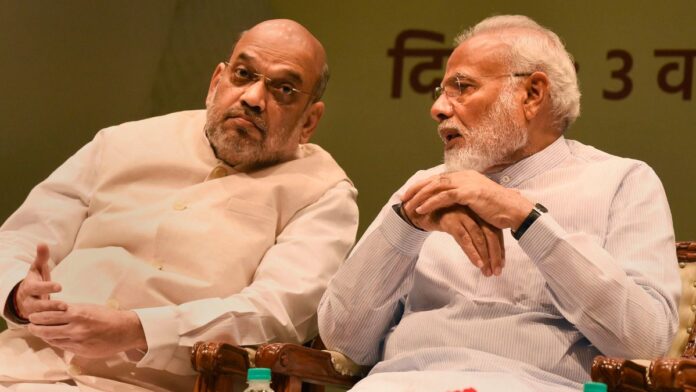Union Home Minister Amit Shah, in his address at the 71st plenary session of the North Eastern Council (NEC) in Shillong, marked the 10 years of Prime Minister Narendra Modi’s central government as a “golden era” for the northeastern region. Shah highlighted significant advancements in infrastructure, a notable decrease in violence, and successful conflict resolution during this period.
Underlining the government’s commitment to the region’s progress, Shah mentioned the implementation of three key principles: Act East, Act Fast, and Act First. These principles, he emphasized, have not only reduced the physical distance between the Northeast and the rest of India but also worked towards bridging “differences in hearts.”
Shah recalled the establishment of a separate ministry for the Northeast during Atal Bihari Vajpayee’s time, emphasizing that under PM Modi’s leadership, the three mantras have continued to guide development efforts in the region.
One of the remarkable achievements highlighted by Shah was the 71% reduction in violent incidents during Modi’s tenure. The minister attributed this decline to the surrender of more than 8,900 cadres of militant groups, contributing significantly to the region’s improved security situation. Furthermore, the removal of the Armed Forces Special Powers Act (Afspa) from the majority of areas, except for some parts of Assam and Manipur, was noted as a positive step toward normalization.
Shah shed light on the crucial role played by the North Eastern Council in fostering development over its 50-year existence. The region has witnessed the construction of over 12,000 km of roads, the establishment of 700 MW power plants, and the creation of institutes of national excellence under the guidance of NEC.
Technology’s role in administration was also emphasized, with the North-Eastern Space Applications Centre (NESAC) facilitating advancements in this aspect. Shah encouraged northeastern states to prioritize creating a flood-free and drug-free region while strengthening water management using NESAC. He suggested the creation of large lakes to absorb rainwater, promoting tourism and enhancing water supply and irrigation systems.
Highlighting the government’s commitment to infrastructure expansion, Shah revealed significant investments in railways and road connectivity. The Bharat Mala project saw the construction of 5,196 km of roads in the Northeast, while the UDAN scheme led to the establishment of eight new airports and seventy-one new air routes over the past decade.
Shah concluded by emphasizing the potential for employment generation in the Northeast through self-reliance in sectors such as organic products, dairy farming, fishing, and egg production. He stressed that individual development is as crucial as regional progress, with industrial production and agriculture identified as key avenues.
Looking forward, Shah urged the Northeast to set ambitious targets, aligning with India’s goal of becoming a five trillion-dollar economy. He envisioned a fully developed and self-reliant Northeast by 2047, paralleling India’s overarching journey towards complete development and self-sufficiency.



